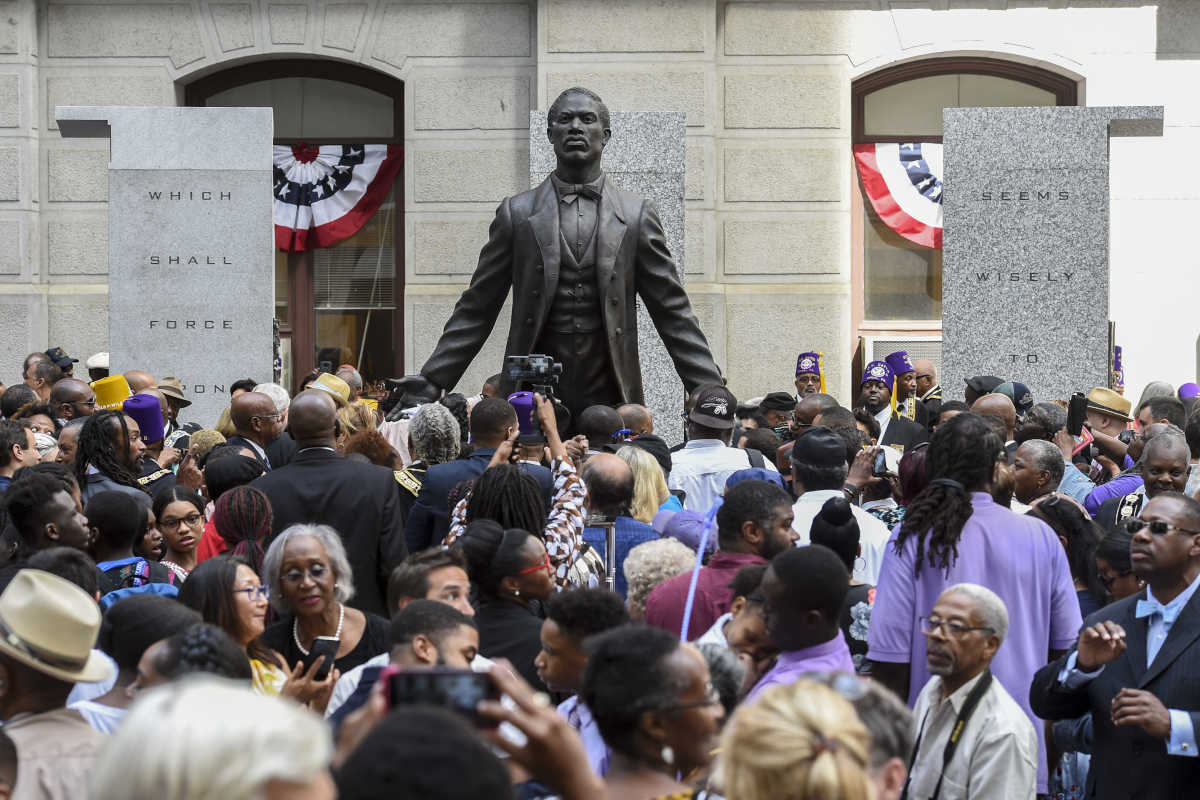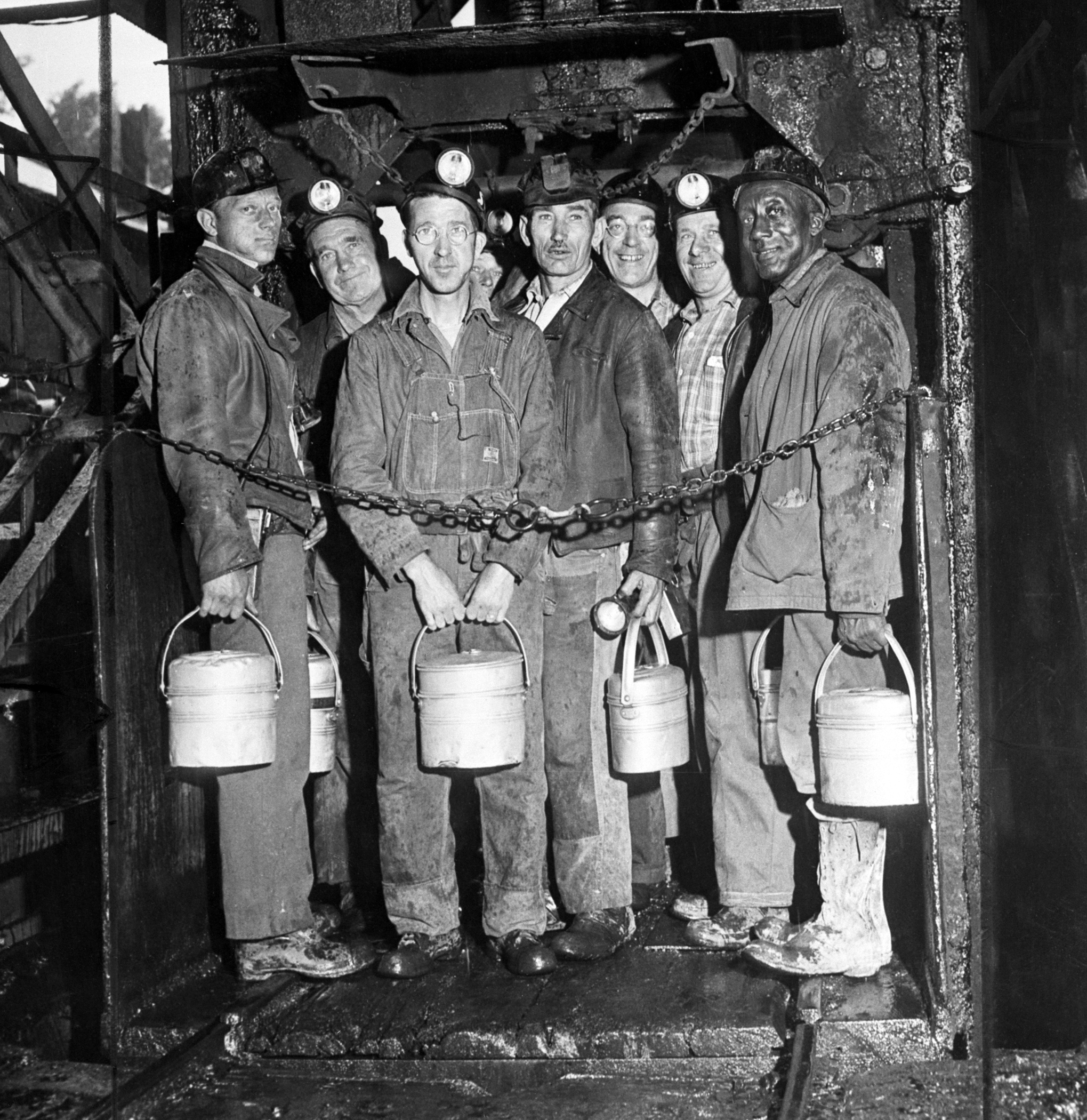Identifying Philadelphia's History Needs: Missing Narratives in K-12 Classrooms
We are finally beginning to debate criteria for our Steem awards to local history nonprofits. Through the power of Steem, we are somehow 30% of the way towards our goal, and we want to start the process of soliciting proposals from chosen projects, people, or institutions. In other words, things are starting to get real.
For this post in particular, I’ve been asked to identify a need within Philadelphia’s history community. What kind of programming, preservation, or planning do we want to sponsor? How can we make sure our contributions effect meaningful action within the city’s history sector? Who needs this money the most?
With those questions (and our weekly class discussions) in mind, here is what I believe should be our top criteria for funding:
- With our Steemit award, we should invest in and support grassroots history organizations based within the community rather than exclusively large, established museums and libraries.
- In terms of our investment focus, we should support programming that centers critical and revolutionary African American history interpretation for K-12 audiences.
As I have mentioned in previous posts, Philadelphia’s public history prioritizes white, rich, straight, cis-male Revolutionary Era stories. As such, the city’s many monuments, historic sites, and museums fail to capture the depth and breadth of its 250 year thriving and influential African American community. Let’s examine Pennsylvania and Philadelphia’s black public history in numbers:
Of the 310 Pennsylvania Historical Markers in Philadelphia County, 99 document important sites in African American History. Admittedly, this statistic does not seem awful, but there are hundreds of undocumented and/or at risk historic sites of African American history in Philadelphia (see this report by the Preservation Alliance).

John Coltrane House in Strawberry Mansion. Despite a State Historic Marker and being on the National Register of Historic Places, the Coltrane house currently faces massive repair costs and ownership disputes.
Of the city’s 1500 monuments and statues, two represent historic figures of color (and zero of them represent women of color).

The unveiling of Octavius V. Catto's statue in September 2017. This is the only statue in the city representing a singular African American person.
Of the 25 historic sites operated by the Pennsylvania Historical and Museum Commission, zero properties interpret African American history. At all.

PHMC manages sites dedicated to military, rural, and industrial history, and despite the easily researched minority narratives, their history remains un-interpreted by the State's Historic sites. Photo courtesy of ExplorePAHistory.com
There are zero museums in the area dedicated to the interpretation of 20th century African American history.

This permanent exhibit at the African American Museum of Philadelphia, Audacious Freedom, spans 1776-1876
Given these statistics, organizations have popped up to fill this need. Take for instance the Philadelphia Black History Collaborative. Upon witnessing the flaws within the city’s current African American history curriculum, activist educators of color came together to fight for “the legacy of self-determination and the righteous study of Black history in our city and across the nation.” Through the volunteer work of their planning board and a self-initiated fundraiser campaign, they host professional development seminars and curriculum building workshops for African American history teachers throughout the city. And despite a lack of support from the Philadelphia School District, they also sponsored the Black Lives Matter in Schools Week of Action and concluding conference.
Granting an award of even $1000 to the Collaborative would fund the advancement of more engaging, relevant, and critical black history in Philadelphia. Untethered by a costly building or the slow bureaucracy of executive boards, grassroots organizations such as these have the ability to effect nearly immediate change within the community.
And given the egregious underrepresentation of African American narratives in Philadelphia’s public history landscape, it is well passed the time for change.
100% of the SBD rewards from this #explore1918 post will support the Philadelphia History Initiative @phillyhistory. This crypto-experiment conducted by graduate courses at Temple University's Center for Public History and MLA Program, is exploring history and empowering education. Click here to learn more.
An important need, for sure.
Can we know more about this group? After all, it's Black History Month, and unless I'm missing something, I don't see any programming from or by this group mentioned online. Does that make anyone else worry about their capacity, their ability to carry out programming?
Maybe there are other groups more ready for support?
Hey Ken, these are excellent questions! You are correct, they do not have a website; however, they do have a robust Facebook page and Google Drive full of lesson plans (that they provide themselves). They connect African American history educators to opportunities as well as provide those opportunities (conferences, professional development, monthly meetings, etc). They are a group of full time Philadelphia teachers who do all of their own fundraising for these events. At the beginning of February, they planned and hosted the Black Lives Matter Week of Action in Philly Schools and held a 2nd annual culminating conference at the end of it. Here's a more specific note from one of their founders:
“We are creating a network of educators who will have access to materials not currently available through the School District of Philadelphia curriculum..They say that history repeats itself every 50 years. We are reaching that mark [the post-civil rights movement period which began in 1968] now. We want to control the narrative [going forward] before it becomes all ‘Jimi Hendrix and moving into the suburbs,’” Ismael Jimenez, M.Ed.
Excited to see your proposal!
Have there been any African American history classes in the school district that have gotten involved somehow in public history? Creating walking tours, recommending historic markers, etc?
Hey Charlie! No, nothing has come to my attention after asking around for almost two years, haha. However, everyone is always very, very interested in the idea of walking tours--free, place based education!